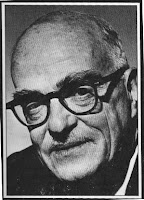“There is something mysterious about the endowment of the storyteller. Some very great writers possessed very little of it, and some others, lightly esteemed, possessed it in so large a measure that their books survive down the ages, to the confusion of severer critics. Alexandre Dumas had it to an extraordinary degree; while Melville, for all his splendid quality, had it barely sufficiently to raise his work from the realm of nonfiction. It springs, not, as some have said, from an aversion to general ideas, but from an instinctive coupling of idea and illustration; the idea, for a born storyteller, can only be expressed imbedded in its circumstantial illustration. The myth, the parable, the fable are the fountainhead of all fiction and in them is seen most clearly the didactic, moralizing, employment of a story. Modern taste shrinks from emphasizing the central idea that hides behind the fiction, but it exists there nevertheless, supplying the unity to fantasizing, and offering a justification to what otherwise we would repudiate as mere arbitrary contrivance, pretentious lying, or individualistic emotional association-spinning. For all their magnificent intellectual endowment, George Meredith and George Eliot were not born storytellers; they chose fiction as the vehicle for their reflections, and the passing of time is revealing their error in that choice. Jane Austen was pure storyteller and her works are outlasting those of apparently more formidable rivals.” —Pulitzer Prize-winning American novelist and playwright Thornton Wilder (1897-1975), “Some Thoughts on Playwriting” (1941), reprinted in American Characteristics and Other Essays, edited by Donald Gallup (1979)
Subscribe to:
Post Comments (Atom)

No comments:
Post a Comment